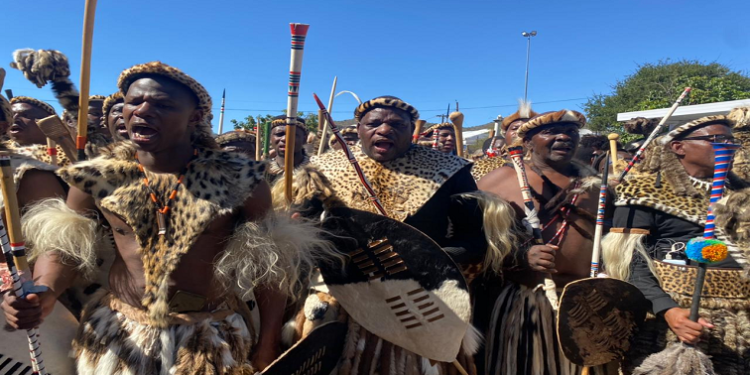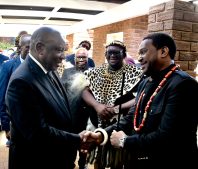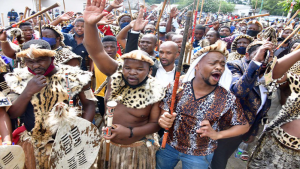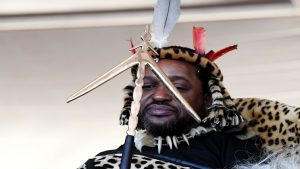Before the 19th century, Zulu people lived in isolated clans. The first Zulu monarch King Shaka kaSenzangakhona united all the groups into a single Zulu nation. King Shaka led a system of defensive community. Young men were shaped into amabutho (warriors), they were trained to defend themselves against raiders.
‘Military power’
The military power that King Shaka instilled was also applied by his successors. The Zulu nation were trained to be powerful in wars, their fighting techniques were powerful and played a meaningful role in the rise of military and political power.
During King Shaka’s reign, European settlement began. The white people came to do trading business not to invade Zululand, they even asked for permission from the king to conduct business in the area.
In 1877 the British saw and opportunity and planned to takeaway Zululand from the Zulu nation. They wanted to extend British power in South Africa, they wanted to do this by creating Federation of British colonies and Boer republic.
The British executed a plan to take control over Zululand however, king Cetshwayo the Zulu nation 4th monarch refused the British’s demands for Federation and the disbanding his army.
As a result, the British invaded Zululand in order to enforce their demands. This happened in 1879.
Anglo-Zulu war happened, it lasted for six months. The war consisted of various battles namely the battle of Isandlwana, the battle of Rorke’s drift and the battle of Intombe. The war was very hectic. In the historic battle of Isandlwana the British were heavily armed with rifles while the Zulu people were using shields and spears. The Zulu people were advanced in the art of war, they defeated and killed the British raiders.
Finding it hard to accept defeat, the British seized Cetshwayo’s capital, captured him and sent him to exile. They then divided the kingdom into 13 chieftaincies. They knew that a divided nation is a weak nation, this is how the colonial government took over.
‘The colonial government – The Natal Government’
The Zulu people were not happy to be governed by the colony. Things became worse when their crops and cattle were attacked by natural disaster, their crops and cattle died. The people were pushed to go seek employment in railway companies and Witwatersrand mine.
‘Heavy Tax imposed’
The Natal Government imposed the tax law that required 1 euro per head. This was a way of frustrating people and pushing them to seek employment in order to comply with tax law and drive them away from their land. When the British formally appropriated Zululand, Zulu people were forced to become labourers.
Apart from being war warriors that threatened the oppressors, Zulu nation contributed a lot to South Africa’s urban workforce in the 20th century and the first black labour unions in the country. The Zulu Washermen’s Guild and Amawasha unions were formed by Zulus. Their labour unions existed before the Union of South Africa was formed in 1910. Today workers can fight employers’ exploitation using various unions that were influenced by the Zulu nation.
“Tradition and liberation”
In 1923 Solomon kaDinuzulu who ruled from 1916-1933 formed an organisation called Inkatha Ya KwaZulu. The movement was formed to promote the monarch and revive the tradition that was slowly swept away by the colonisers. The movement was also used to reduce tensions within the kingdom. However, it later became non-existent until it was revived by Mangosuthu Buthelezi, his nephew, Princess Magogo kaDinuzulu’s son. Buthelezi renamed the organisation as Inkatha Freedom Fighters, a protest movement against apartheid. The revival of IFP was also influenced by the ban African National Congress in 1960.
Zulu nation has been characterised preservation of traditions, the leaders focused on gaining state recognition, political and cultural rights for the people. The tradition and culture influenced collectivism within the nation whereby Zulu people had to put the nation first before themselves. All the Zulu monarchs played a vital role in uplifting the nation, some used their army skills to defeat the British during war whilst others used influence to oppose colonialism.
When King Goodwill Zwelithini kaBhekuzulu became the king, he promoted education, established food security by teaching people how to farm. In the 1970s king Zwelithini and Buthelezi formed Kwazulu Natal Joint Executive Authority which was combined with the Provincial Government to form a non-discriminatory government. King Zwelithini upheld strong political power and advocacy of traditional rights. His political influence granted him provincial powers. The spirit of culture preservation instilled a fighting spirit to the Zulu people, they believed that submitting to the colonizers meant discarding their cultural values, thus, they fought until colonizers understood that they will never accept suppression.
References:
South African History online, accessed on 23 October 2022, https://www.sahistory.org.za/article/zulu
Inkatha Freedom Party: ‘The Unconquerable Spirit of a Conquered Nation: Telling the Zulu story, accessed on 20 October 2022, https://www.ifp.org.za/newsroom/the-unconquerable-spirit-of-a-conquered-nation-telling-the-zulu-story/
National Army Museum, Zulu war, accessed on 21 October 2022, https://www.nam.ac.uk/explore/zulu-war
Bengu, S.M, The national Cultural Liberation Movement






